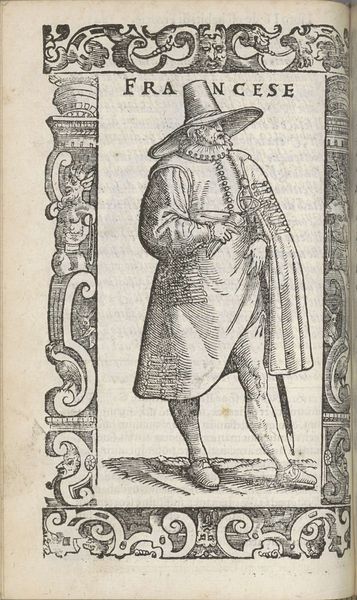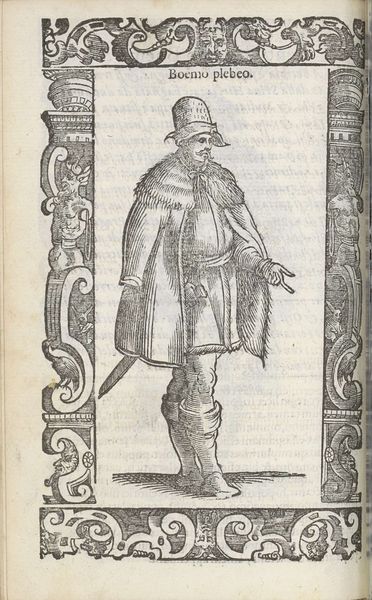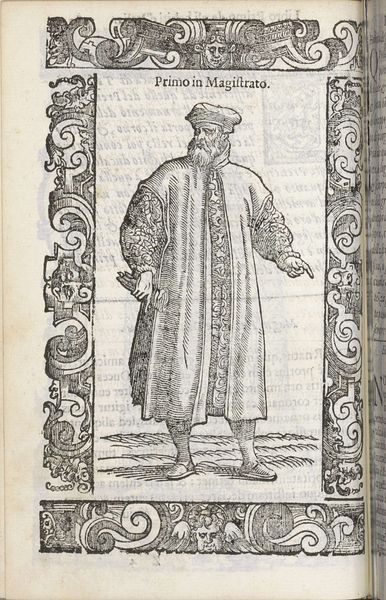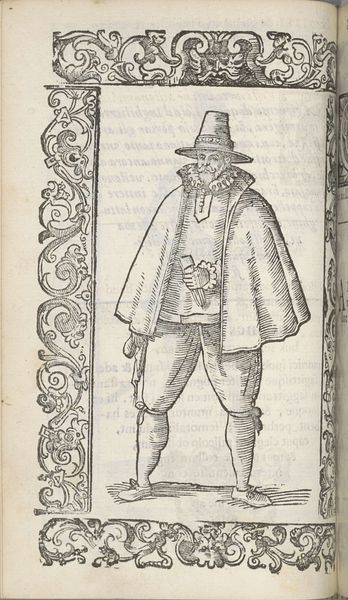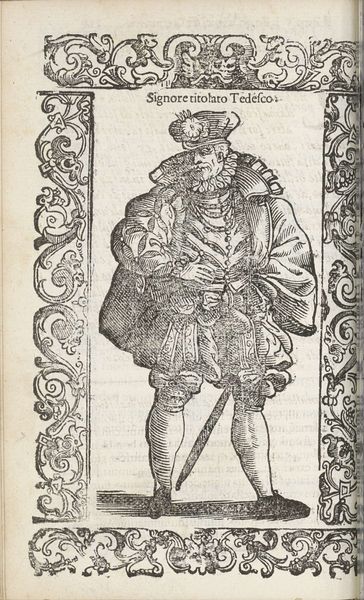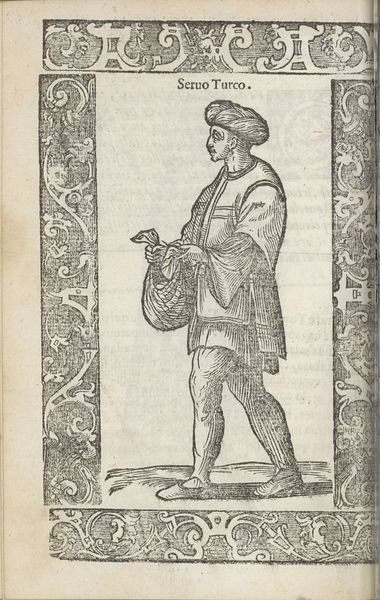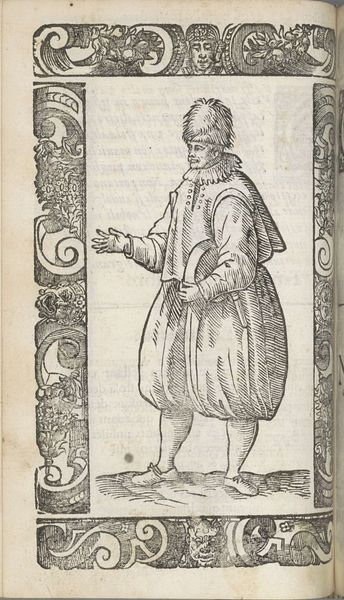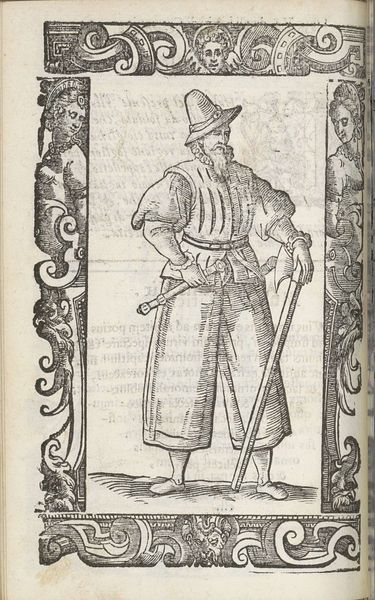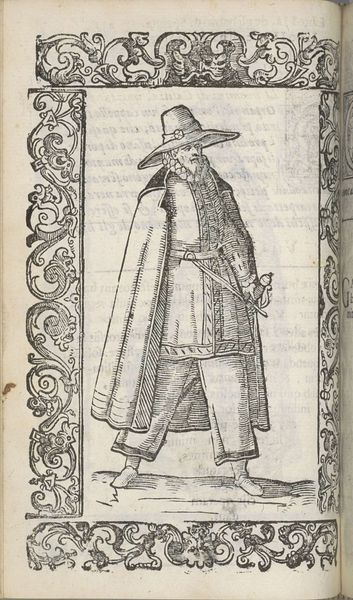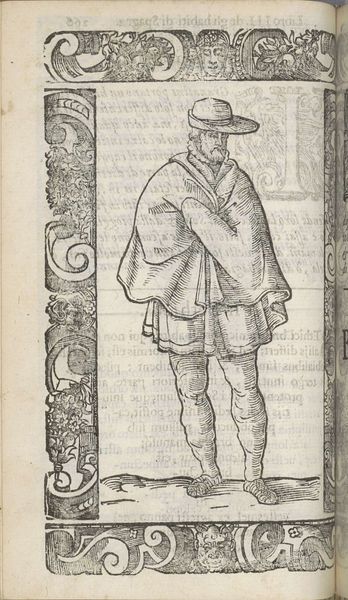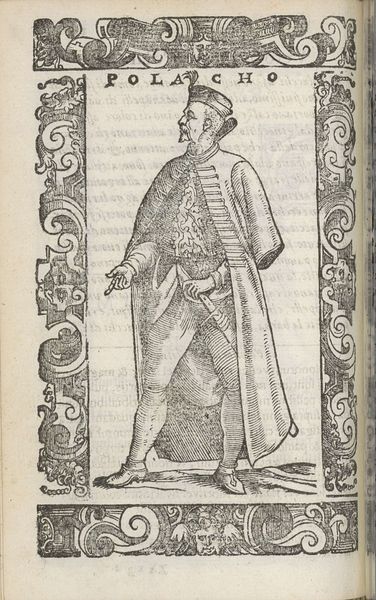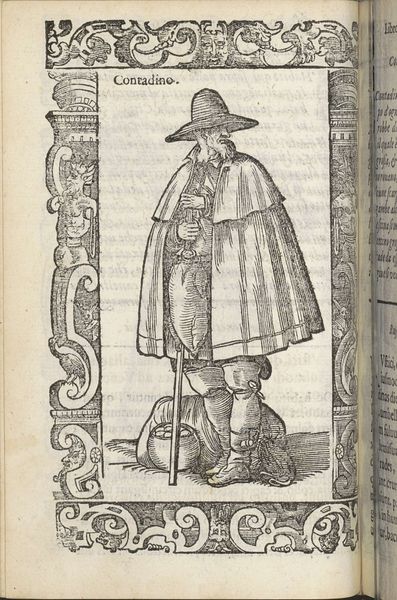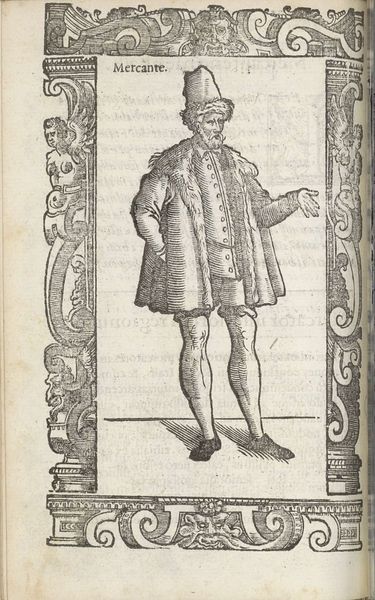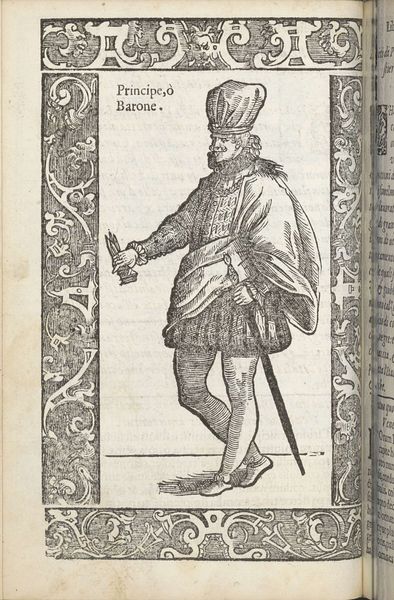
#
toned paper
#
light pencil work
#
pen sketch
#
pencil sketch
#
old engraving style
#
personal sketchbook
#
pen-ink sketch
#
pen work
#
sketchbook drawing
#
sketchbook art
Dimensions: height 167 mm, width 125 mm
Copyright: Rijks Museum: Open Domain
Editor: So, we’re looking at Christoph Krieger's "Nobile Boemo" from 1598. It's an ink sketch, seemingly on toned paper. I'm struck by the figure’s gaze—intense, yet the rendering is so delicate, almost fleeting. What leaps out at you? Curator: The gaze, yes, but more than that, I think it’s the dance between what’s there and what isn't. Krieger teases us. It feels less like a portrait and more like a stage presence, doesn't it? He presents the “Nobile Boemo” not just as a nobleman of Bohemia, but almost as if placing the *idea* of nobility itself on display. Like a half-remembered dream, all swirling robes and determined chin. Editor: I hadn’t considered it that way – a stage presence, a performance. Curator: Think of the ornamental framing too. The figures lurking in the margins! They are less concerned with literal accuracy, and more absorbed by crafting the perfect...mood. Almost as though he's saying, "Look not at *him,* but at *how you see him*." Am I making any sense? Editor: Absolutely! The figures in the frame almost feel like his audience then? Curator: Precisely. I find myself wondering, who are *we*, the viewers in this scenario, and what Bohemian Nobility really means to us now? Editor: It’s fascinating to think about how the context shifts through time and changes how we read a work like this. I'm seeing it with new eyes! Curator: Indeed! It’s like the piece grows a new beard with every passing century, demanding we meet it not just where it *was*, but where it *is*.
Comments
No comments
Be the first to comment and join the conversation on the ultimate creative platform.
